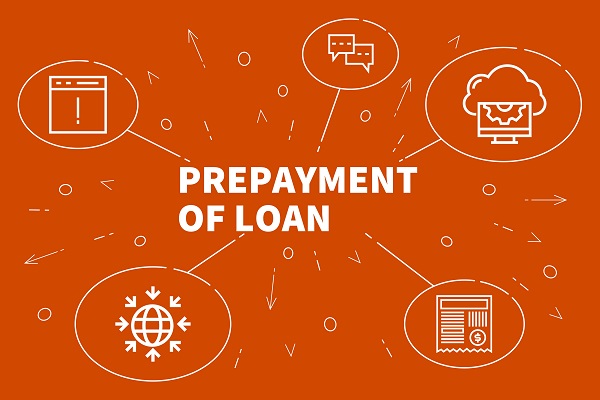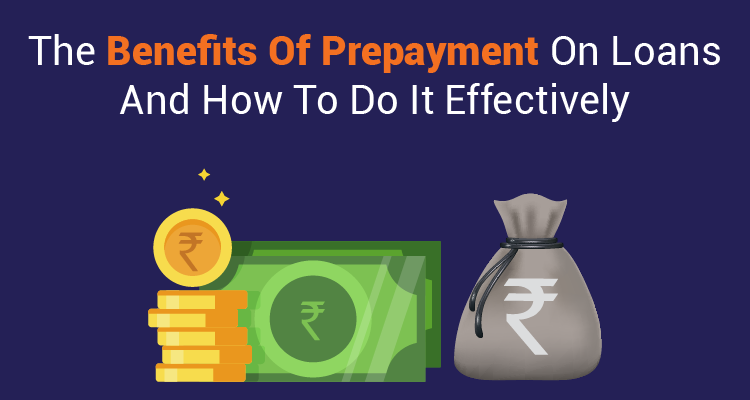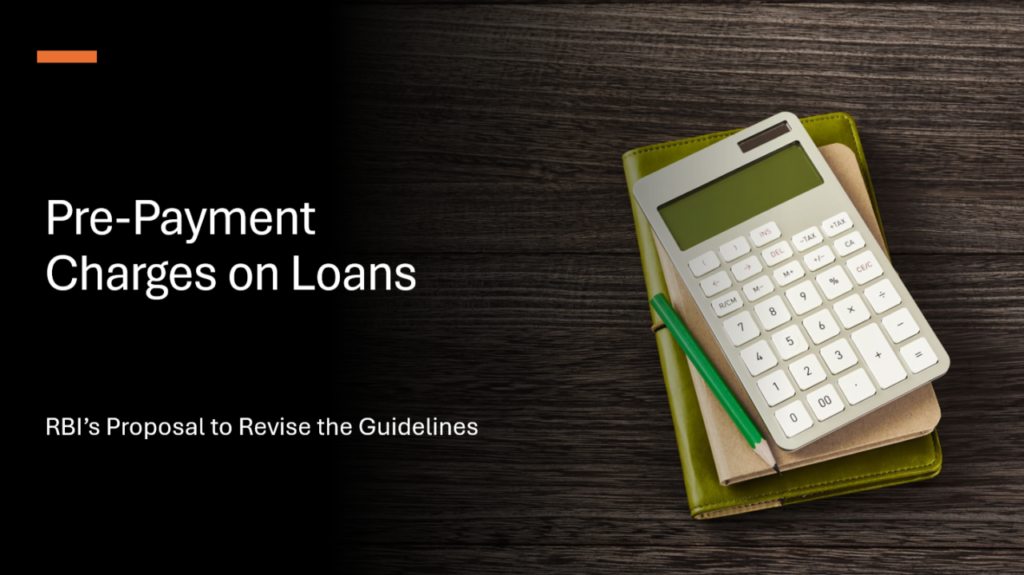Imagine you’ve taken a loan, and now you have some extra cash. You think, “Why not repay it early and get debt-free?” But then, you hear about loan prepayment charges. Now, you’re wondering—is it really worth paying these extra charges? Let’s dive deep into this topic and see if prepaying your loan is a smart financial move.
Understanding Loan Prepayment

Loan prepayment is when you repay your loan before the scheduled tenure ends. Borrowers may choose to prepay loans to reduce their debt burden or save on interest costs.
Types of Loan Prepayment
Full Prepayment
This means repaying the entire loan amount before its actual tenure. For example, if you took a 10-year loan but decide to pay off the remaining amount in the 5th year, that’s full prepayment.
Partial Prepayment
Partial prepayment is when you pay off a chunk of your loan but continue with the remaining EMI schedule. This helps reduce the principal amount, which lowers the interest cost over time.
Loan Prepayment Charges: What Are They?
Prepayment charges are fees that lenders impose when you decide to prepay your loan. These fees act as compensation for the lender’s loss of interest income.
Why Do Lenders Impose Prepayment Charges?
Lenders primarily earn from interest payments. When you repay a loan early, they lose future interest earnings. To make up for this loss, they charge a prepayment penalty.
How Loan Prepayment Charges Are Calculated
Prepayment charges vary based on loan type and lender policies. Some common methods include:
- A fixed percentage of the outstanding loan amount.
- A percentage of the prepaid amount (e.g., 2-5%).
- A declining charge over time (higher in the early years, lower later).
Pros of Paying Loan Prepayment Charges

- Lower Interest Costs – Paying off a loan early can save you a significant amount in interest payments.
- Debt-Free Life Sooner – Prepaying lets you achieve financial freedom faster.
- Better Credit Score – Closing a loan successfully improves your credit profile.
Cons of Paying Loan Prepayment Charges
- Extra Financial Burden – The prepayment charges can sometimes negate the savings.
- Opportunity Cost – The money used for prepayment could be invested elsewhere for higher returns.
- Liquidity Issues – Using up savings for prepayment might leave you with limited emergency funds.
When Should You Consider Prepaying Your Loan?
Prepayment makes sense when:
- The prepayment charges are low or zero.
- You have extra funds that won’t impact your financial stability.
- Your loan’s interest rate is high, making prepayment more cost-effective.
When Is It Better to Avoid Prepaying a Loan?
Avoid prepayment if:
- The penalty fees outweigh the interest savings.
- You have higher return investment opportunities.
- You lack sufficient emergency funds.
Alternatives to Prepaying Your Loan
- Investing Instead – If your investments offer better returns than loan interest, consider investing.
- Refinancing – Opting for a lower interest loan can reduce your EMI burden.
- Increasing EMI Payments – Some lenders allow you to increase EMI amounts without prepayment penalties.
Tips to Minimize or Avoid Prepayment Charges
- Choose loans with no prepayment penalties.
- Wait for the lock-in period to end before prepaying.
- Use windfall gains like bonuses or tax refunds for partial prepayments.
Regulations on Loan Prepayment Charges

- In many countries, prepayment penalties on floating-rate home loans are banned.
- Some personal and business loans may still have prepayment clauses.
- Always read the loan agreement carefully to understand hidden charges.
Real-Life Scenarios: Is It Worth Paying Prepayment Charges?
Consider this scenario:
You have a loan of $20,000 with a 10% interest rate.
You decide to prepay $10,000, but the lender charges a 3% prepayment penalty.
The penalty would be $300, but you save thousands in interest.
In this case, prepayment is beneficial.
However, if the penalty were 5-7%, it might not be worth prepaying.
Conclusion
Loan prepayment can be a smart move, but it’s not always the best choice. The key is to calculate the savings versus the penalty and make an informed decision. If the charges are low, and you can afford it, prepaying can give you peace of mind. Otherwise, consider alternative financial strategies to maximize your wealth.
FAQs
1. Can I avoid loan prepayment charges?
Yes! Opt for loans that have no prepayment penalties, or wait for the penalty-free period.
2. Do all loans have prepayment charges?
Not always. Many home loans with floating interest rates do not have prepayment fees, but personal and business loans often do.
3. Is it better to invest or prepay a loan?
It depends! If your investments yield higher returns than your loan interest rate, investing is the better choice.
4. How much are loan prepayment charges?
They vary but typically range from 2% to 5% of the outstanding or prepaid amount.
5. Should I prepay my home loan?
Each insurer uses unique algorithms and risk assessment models to determine pricing.
By understanding prepayment charges, you can make the best financial decision for your future!